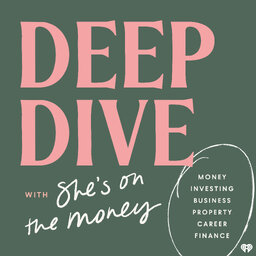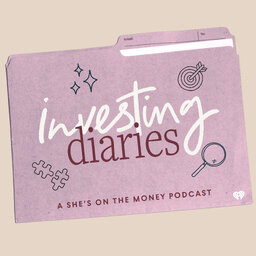Want to Buy Property in 2025? Here’s How to Get Prepared
Feel like buying a home in 2025 seems impossible? We’ve got the plan to make it happen! This week, Victoria teams up with expert mortgage broker Jaclyn Walsh to arm you with the ultimate guide to turning your property dreams into reality—and saving thousands while you’re at it.
From when to call a mortgage broker to insider hacks that could cut years off your loan and tens of thousands off the cost, this episode is bursting with tips from our industry expert. Wondering if your Uber Eats habit might hurt your chances? Or whether paying off HECs early is a good idea? Don’t worry, we’ve got answers. Whether you’re saving, planning, or just starting to dream, this is the episode to help you crush your property goals.
If you want to enquire with Zella Money you can find them here.
The National Debt helpline is a free resource you where can speak to financial councillors about your debt. Call 1800 007 007 or visit https://ndh.org.au/
Gambling Help offers free, confidential advice via phone 1800 858 858 or online https://www.gamblinghelponline.org.au/
FREEBIE ALERT: Join the She’s on the Money 30-Day Reset—your step-by-step guide to refreshing your finances, setting achievable goals, and starting the year strong! Sign up for free here.
Join our 300K+ She's on the Money community in our Facebook Group and on Instagram.
Acknowledgement of Country By Natarsha Bamblett aka Queen Acknowledgements.
The advice shared on She's On The Money is general in nature and does not consider your individual circumstances. She's On The Money exists purely for educational purposes and should not be relied upon to make an investment or financial decision. If you do choose to buy a financial product, read the PDS, TMD and obtain appropriate financial advice tailored towards your needs. Victoria Devine and She's On The Money are authorised representatives of Money Sherpa PTY LTD ABN - 321649 27708, AFSL - 451289.
In 1 playlist(s)
She's On The Money
Millennial money expert Victoria Devine shares her foolproof tips for financial freedom.Social links
Follow podcast
Recent clips

Is a Bridging Loan Worth the Risk? And The Dating Money Red Flags We Can’t Ignore
31:47

How to Buy Property in 2026: Everything You Need to Know Before Getting a Mortgage
38:51

Bec's Investing Confessions: Her First Year in the Share Market
40:19
 She's On The Money
She's On The Money